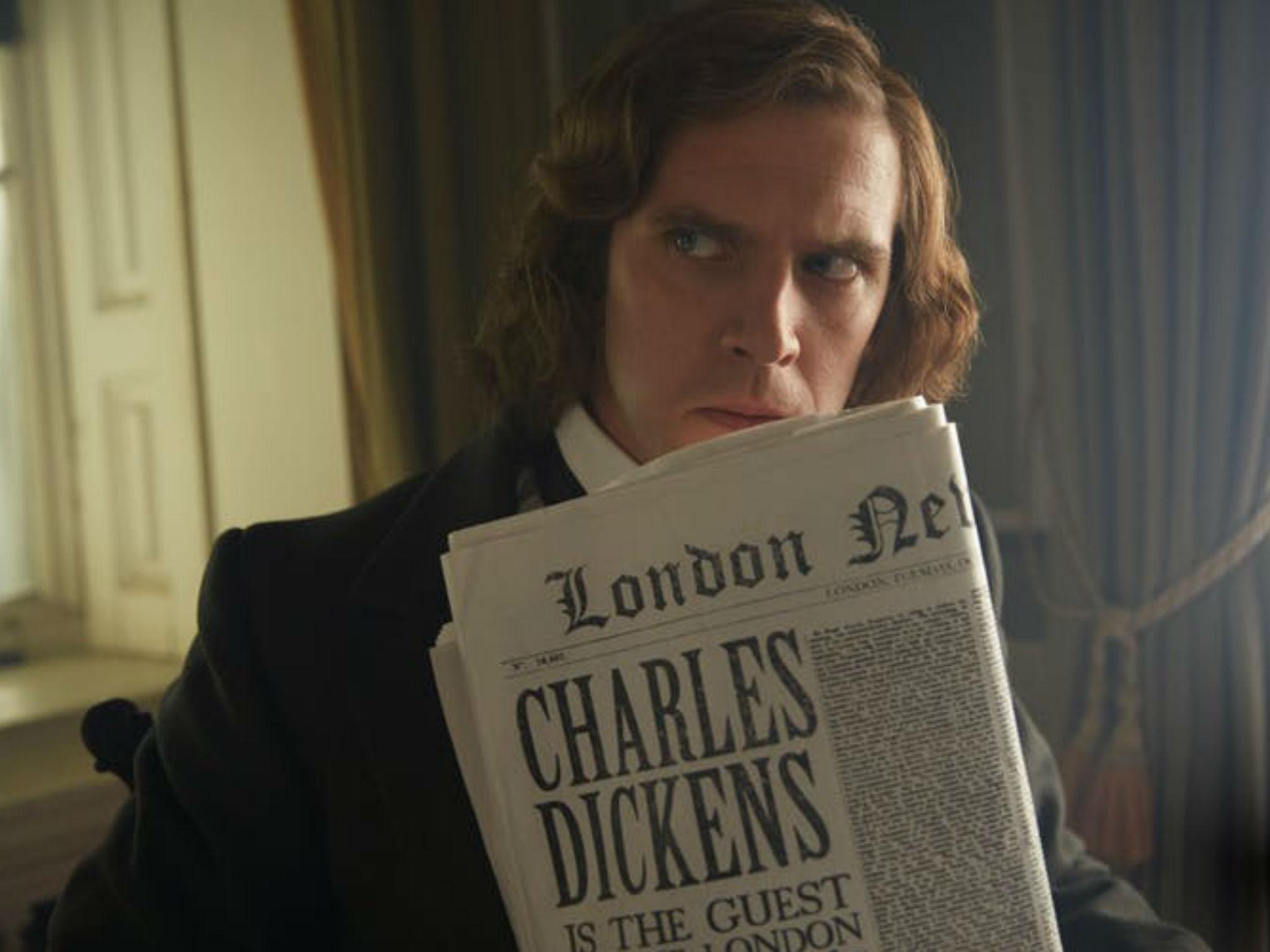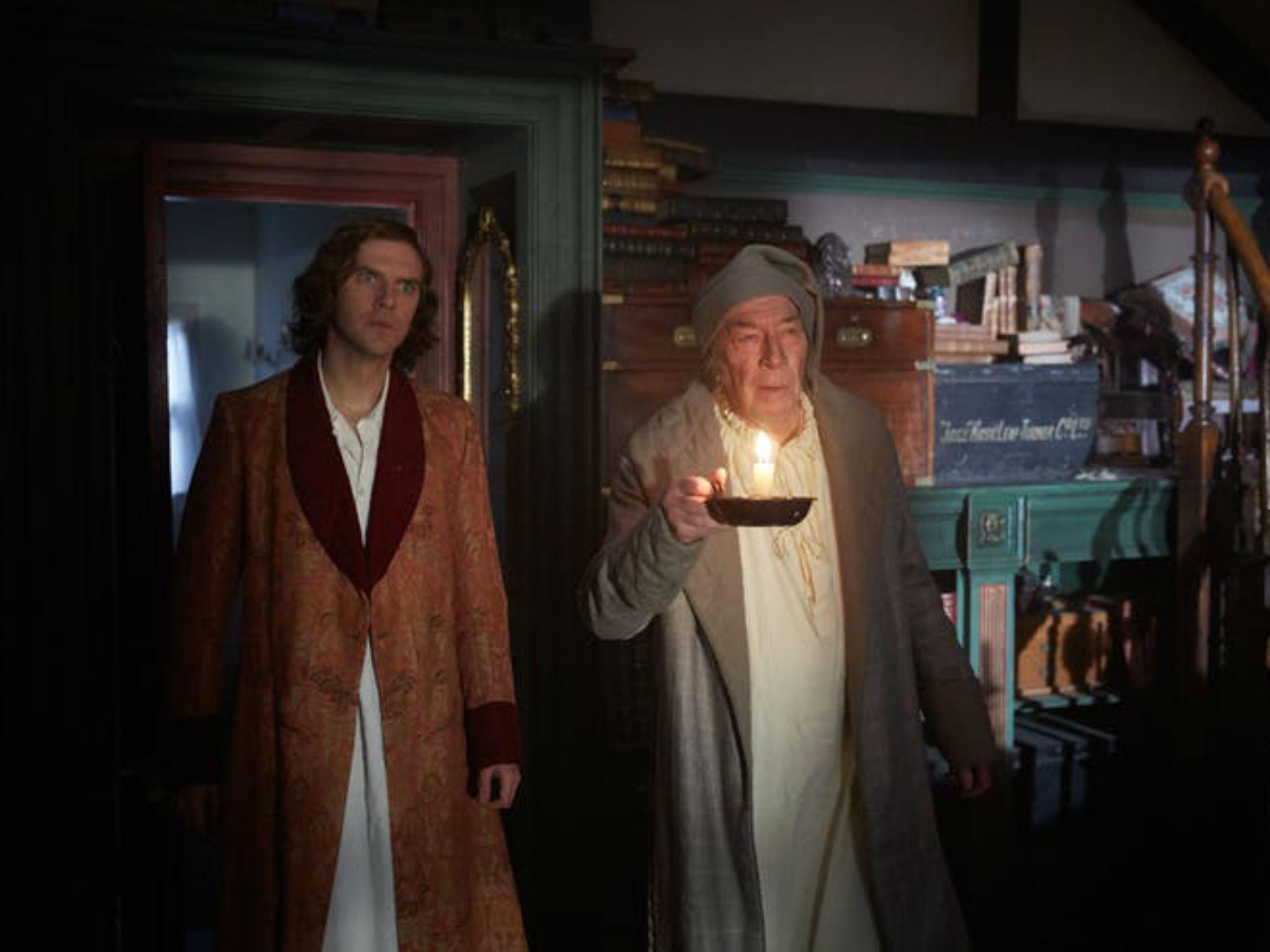Charles Dickens: The man who invented Christmas plagiarised Jesus
The author's classic ‘A Christmas Carol’ created the holiday tradition as we know it while his Scrooge has been echoed in films from ‘It’s a Wonderful Life’ to this season’s ‘The Man Who Invented Christmas’. But it can also be seen as a mirror to biblical parables

Everyone knows the story of Scrooge, a man so miserly his name has become synonymous with penny-pinching meanness. Scrooge’s conversion from miser to benefactor has been told and retold since Charles Dickens first wrote A Christmas Carol in the autumn and winter of 1843. Ebenezer is a wonderful character, so richly portrayed and fascinating he’s echoed in stories from How the Grinch Stole Christmas to It’s a Wonderful Life.
Pop culture has embraced both Dickens and his tale. With the recently released The Man Who Invented Christmas, Hollywood has done it again.
But who was Scrooge before he was, well, Christopher Plummer? The inspiration for the crotchety Christmas hater may have been those who put Dickens’ own father into debtor’s prison and were responsible for young Charles working in a shoe-blacking factory.
Some Dickens scholars believe the author’s 1843 visit to sooty Manchester, or to “the black streets of London,” (as he described them in a letter to a friend) influenced him. It may be that the fable was a moral reminder from Dickens to himself, as he teetered on financial ruin. This is the theory proposed in the book by Les Standiford on which this year’s movie is based.

Did Dickens in fact invent Christmas, as we know it? Hollywood may think so, but others, like David Parker in his 2005 book Christmas and Charles Dickens, vehemently disagree.
Whatever your opinion, the prevailing wisdom is that A Christmas Carol isn’t particularly religious. As a professor of biblical studies at Concordia University and also a Lutheran minister, I have a different reading.
It’s true that the celebration of the season which Scrooge discovers has much more to do with generosity, family gatherings and large cooked birds than the Nativity. But maybe those seeking explicit scriptural references in Dickens’s story are underestimating the Victorian novelist’s skill — and his audacity. Perhaps A Christmas Carol contains an alternative to the Bible rather than a simple borrowing from it. And perhaps that’s the point.
Jesus, by all accounts another master story-teller, told a parable that, stripped of Dickens’s English waistcoats, ledgers, fog and shutters, could almost be a mirror to A Christmas Carol:
“There once was a rich man. A poor man named Lazarus lived at his gate, with nothing to eat. Lazarus died and was carried by the angels to Abraham’s side. The rich man also died.”
There follows, in Jesus’ tale, an exchange between the rich man, who is in torment, and Abraham, who acts as the guardian of paradise. It’s hard not to think of the innocent Lazarus as a precursor to Tiny Tim.
First the rich man asks for his own relief from hell. When that’s denied, he pleads: “I beg you, send Lazarus to my father’s house. I have five brothers. Let him warn them so they don’t come to this place of agony.” Abraham replies: “They have Moses and the prophets. They must listen to them.”
“No, Father Abraham!” cries the rich man, “But if someone from the dead goes to them, they will change” (Luke 16:19-31).
One can almost hear the chains of Marley’s ghost rattling. What would have happened if Father Abraham had said yes? Something very like a first-century version of A Christmas Carol.
Let’s not forget that the people of our western English-speaking past, especially artists and writers, were imbued with Biblical references and ideas. As Northrop Frye, among others, has argued, they lived and created in a world shaped by the rhythms, narratives, images and conceptions (or misconceptions) of the King James Bible.
Was Dickens familiar with Christian scriptures? All evidence points to the fact that he was more acquainted than most. Despite an antipathy to organised religion, from 1846 to 1849 Dickens wrote a short biography of Jesus for his children, titled The Life of our Lord.
He forbade that his small retelling of Jesus’s life should be published, until not only he, but also his children, had died. The “Parable of Lazarus and the Rich Man” was one of eight stories of Jesus that Dickens chose to include in that volume. But in his story of Scrooge, Dickens was too much of a writer to leave Jesus’s parable as is, and his age too suspicious of scripture to leave it “unbroken”.
A Christmas Carol unites the deliciously horrific sensibility of the Gothic movement with the powerfully simple narrative style, joined to moral concern, typical of parables.
Was Dickens perhaps dozing off some Sunday while the rector droned on about Lazarus, until he wakened with a start dreaming of Scrooge? We will never know. But it’s an intriguing possibility.
Surprisingly, the Sunday after Dickens was buried in Westminster Abbey, Dean Arthur Penrhyn Stanley, preaching on exactly this text, spoke of Dickens as the “parabler” of his age. Stanley said that “By [Dickens] that veil was rent asunder which parts the various classes of society. Through his genius the rich man … was made to see and feel the presence of Lazarus at his gate.”
I would go further: Dickens took the parable, and then retold and changed it, so that the rich man gets a second chance. As a privileged societal figure who had gone through financial difficulties and who cared about the poor himself, Dickens freely adapted Jesus to come up with a story that’s ultimately more about love than judgement.
When confronted with Marley’s spectre, Scrooge, unnerved but unrepentant, addresses the apparition: “You may be an undigested bit of beef, a blot of mustard, a crumb of cheese, a fragment of underdone potato.”
The perceptive reader (or viewer) of A Christmas Carol can point a finger at Marley’s ghost and add: “Or maybe you’re an ironic but hope-filled riff on Jesus, by a famous 19th-century author who wanted to write his own story of redemption.”
Dickens not only invented this Christmas genre, but imagined a happy ending for himself in it. He penned an enduring story about the second chance even a rich person can receive, if haunted by persistent-enough ghosts.
Matthew Robert Anderson is affiliate professor of theological studies at Loyola College for Diversity & Sustainability, Concordia University. This article originally appeared on The Conversation (theconversation.com)
Join our commenting forum
Join thought-provoking conversations, follow other Independent readers and see their replies
Comments
Bookmark popover
Removed from bookmarks